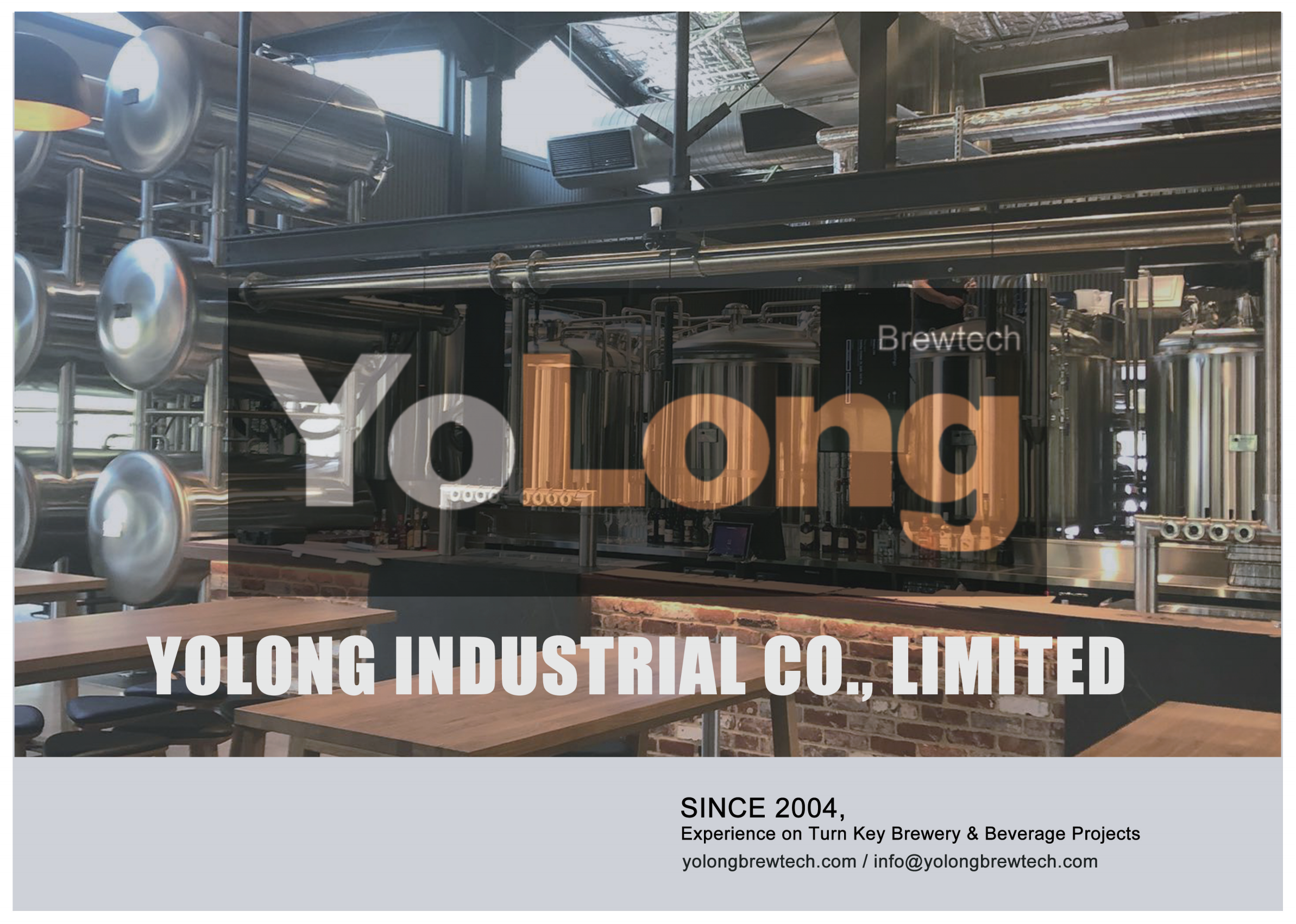The Best Conical Fermenters in the UK
Brewing your own beer, kombucha, or cider at home is an exciting venture, especially when you’re equipped with the right tools. A conical fermenter is a game-changer for both amateur and professional brewers, offering superior efficiency and quality in the fermentation process.
What is a Conical Fermenter?
A conical fermenter is a fermentation vessel with a conical bottom designed to separate sediment and yeast during the fermentation process. Unlike traditional flat-bottomed fermenters, conical fermenters allow brewers to remove unwanted solids without transferring the liquid to another container. This not only simplifies the brewing process but also reduces the risk of contamination.
The unique design features a cone-shaped bottom where sediment, known as trub, collects. Most models include a valve at the bottom of the cone, enabling easy removal of the sediment while preserving the liquid. This makes them ideal for brewing beer, fermenting kombucha, or even crafting wine.
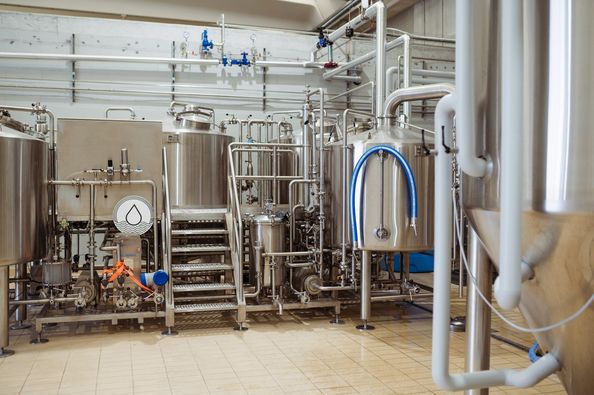
The Importance of Conical Fermenters in the UK
Why are conical fermenters so important for brewers in the UK? Here are some key reasons:
- Precision Brewing: With better control over the sediment removal, UK brewers can achieve cleaner and more consistent results.
- Hygiene Standards: With the UK’s strict food and beverage hygiene regulations, conical fermenters ensure a more sanitary brewing process.
- Growing Brewing Community: The UK’s thriving craft beer and homebrewing scene benefits greatly from the efficiency and professional-level results that conical fermenters provide.
- Sustainability: Many models available in the UK are made of stainless steel, known for its durability and recyclability, aligning with the growing emphasis on sustainability.
Advantages of Conical Fermenters in the UK
Conical fermenters aren’t just a luxury for brewers—they’re a necessity for those aiming for perfection. Here’s why:
- Ease of Use: Removing trub and harvesting yeast without transferring liquids simplifies the brewing process.
- Improved Quality: Reducing exposure to oxygen and contaminants ensures better-tasting brews.
- Durability: Stainless steel conical fermenters are robust, easy to clean, and built to last.
- Scalability: Available in various sizes, they cater to hobbyists and commercial brewers alike.
- Cost Efficiency: Though initially more expensive, they save money in the long run by reducing waste and contamination risks.
Why Choose a Conical Fermenter in the UK
| Feature | Benefit |
|---|---|
| Durable Materials | Stainless steel options are resistant to rust and scratches. |
| Hygienic Design | Meets high UK hygiene standards for brewing and fermenting. |
| Temperature Control | Many models include built-in thermometers or cooling systems. |
| Compact Sizes | Perfect for UK homes and smaller breweries with limited space. |
| Customization Options | Valves, spigots, and additional accessories make them versatile. |
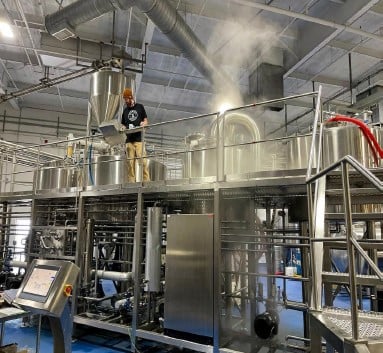
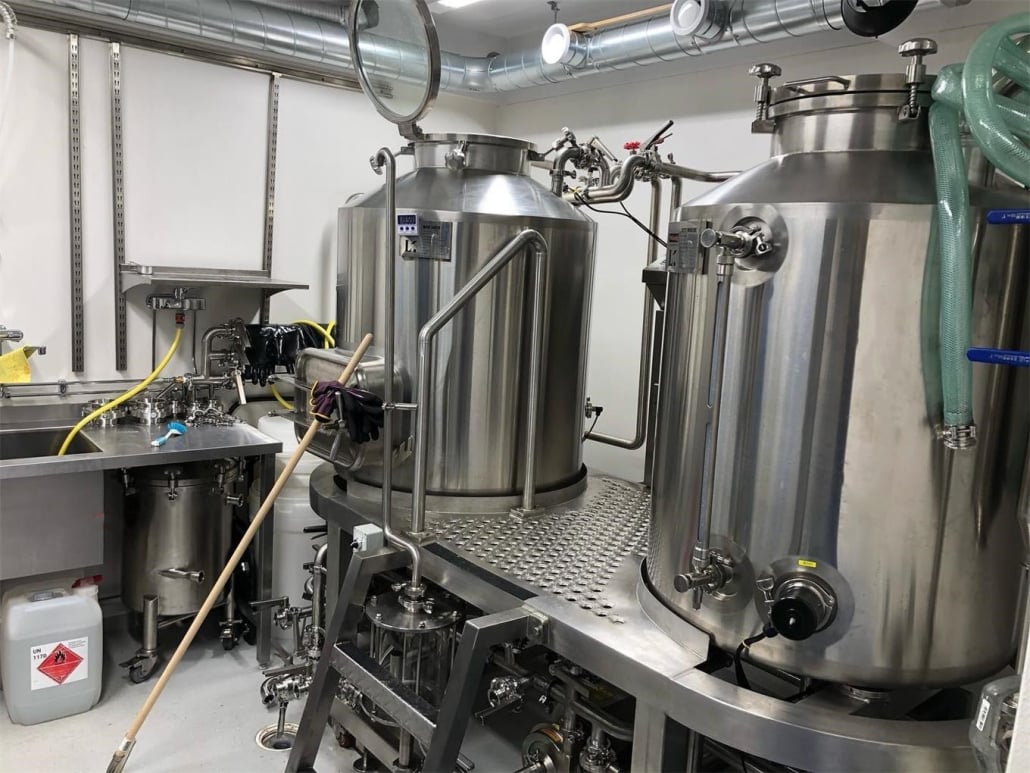
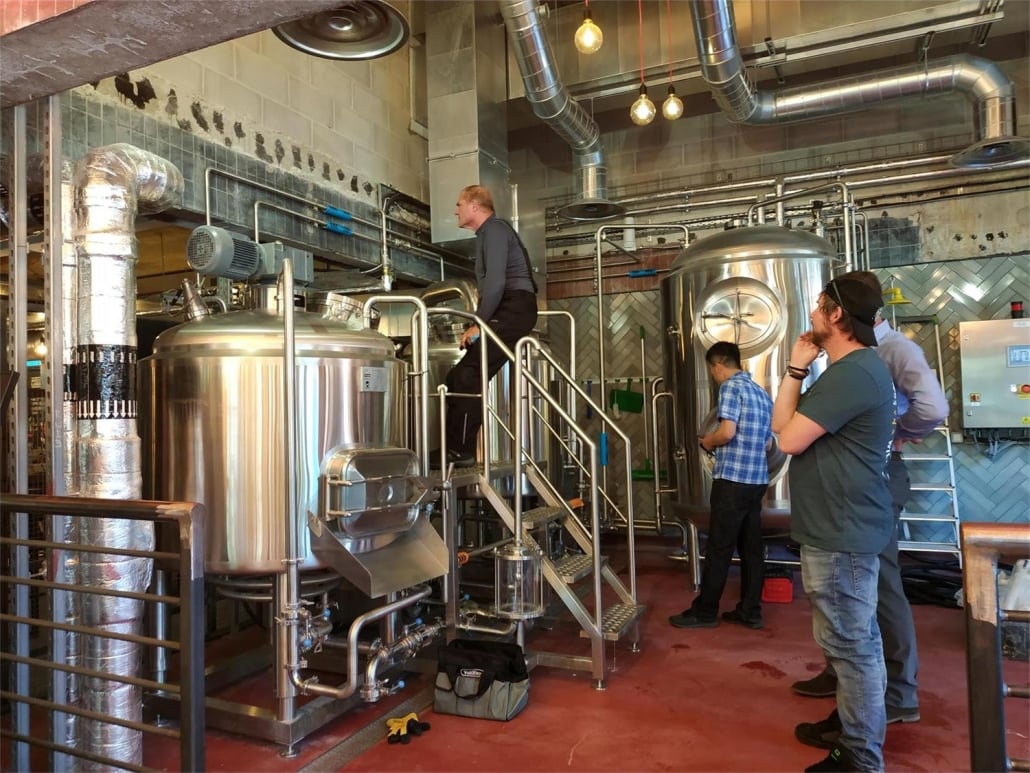
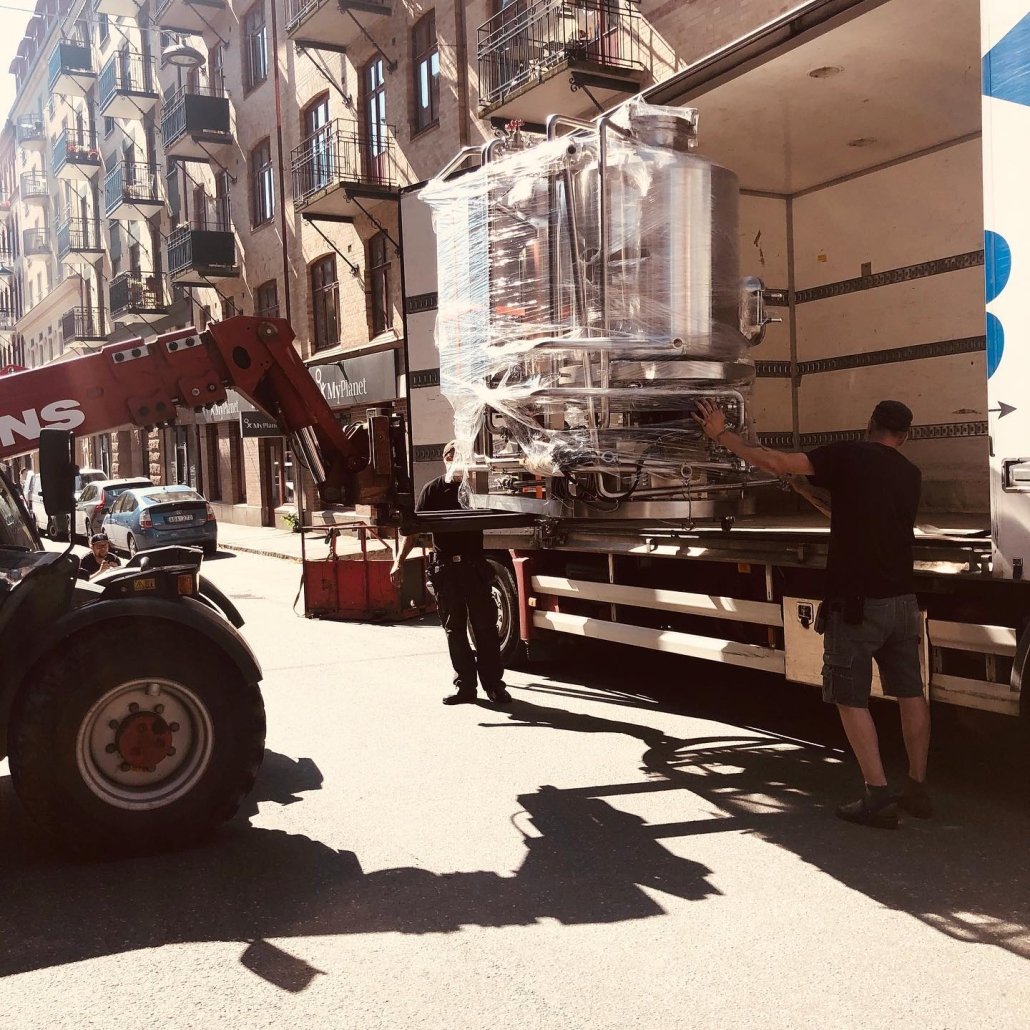
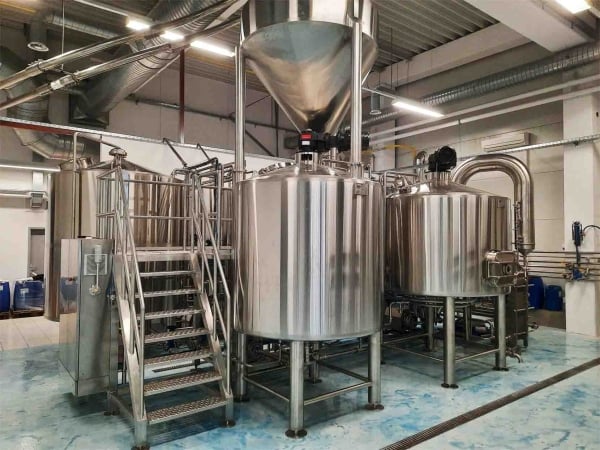
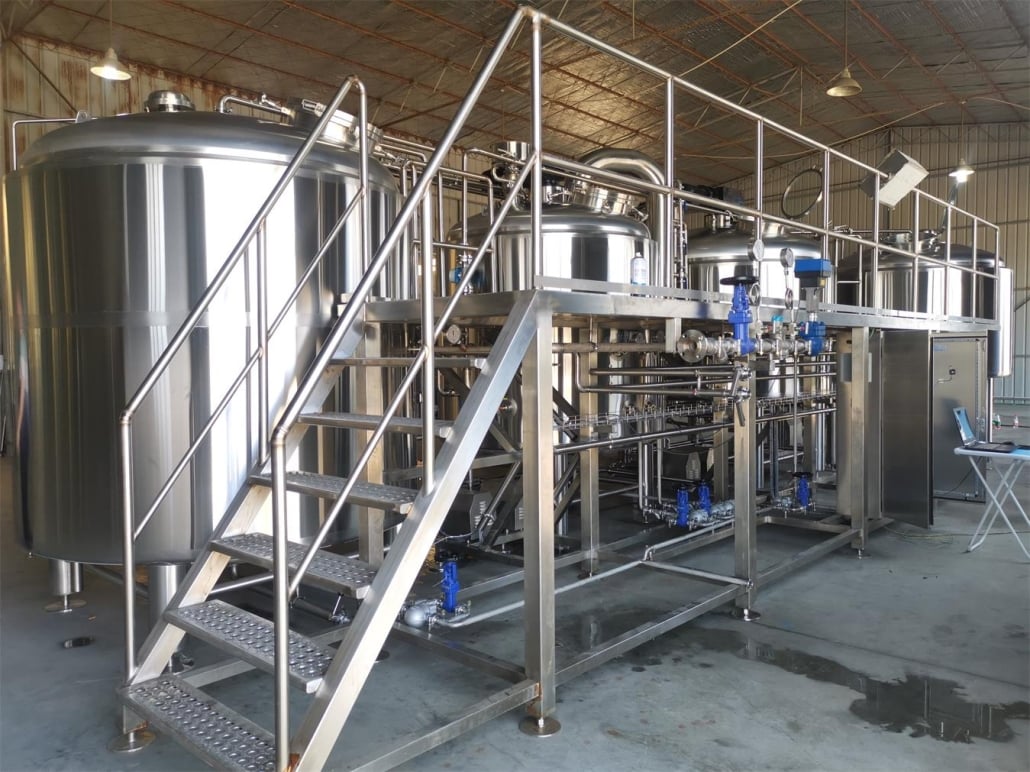
Choosing the Right Conical Fermenter
Selecting the right conical fermenter can feel overwhelming, especially with so many options available in the UK market. Here are some factors to consider:
- Material: Stainless steel is the gold standard for durability and hygiene, while plastic models are more affordable but less robust.
- Capacity: Determine how much you plan to brew. Homebrewers might prefer 5-10L fermenters, while commercial setups need 100L or more.
- Additional Features: Look for extras like built-in thermometers, racking arms, or sampling ports to make your brewing experience smoother.
- Budget: While conical fermenters can be pricey, think of them as an investment in quality and efficiency.
Top Conical Fermenters in the UK
The UK market offers a variety of conical fermenters to suit different needs and budgets. Here’s a look at some popular models:
- Brewtech Stainless Steel Fermenter
- Capacity: 10L to 100L
- Price: £150 – £800
- Features: Durable stainless steel construction, tri-clamp fittings, and temperature control.
- Mangrove Jack’s Fermenter
- Capacity: 15L to 30L
- Price: £60 – £120
- Features: Affordable plastic design with easy-to-use spigots.
- Grainfather Conical Fermenter
- Capacity: 30L
- Price: £299
- Features: Advanced temperature control and seamless integration with brewing systems.
Where to Buy Conical Fermenters in the UK
Finding a reliable supplier is essential to ensure quality and warranty support. Popular places to buy conical fermenters in the UK include:
- Specialist Brewing Stores: Shops like BrewUK and The Malt Miller offer a range of high-quality fermenters.
- Online Retailers: Platforms like Amazon and eBay often have competitive pricing and user reviews to guide your purchase.
- Local Breweries: Some breweries sell surplus equipment or can recommend trusted suppliers.
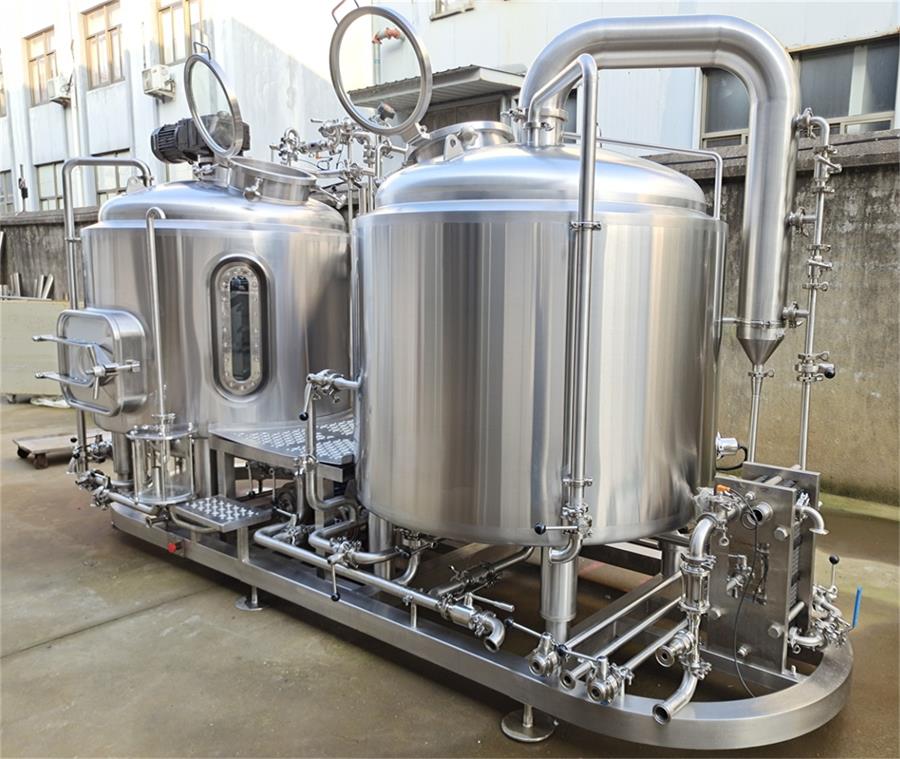
Maintenance Tips for Conical Fermenters
Proper care and maintenance ensure your conical fermenter lasts for years. Here’s how to keep it in top shape:
| Task | Tip |
|---|---|
| Cleaning | Use a non-abrasive cleaner to avoid scratches on stainless steel surfaces. |
| Sanitizing | Always sanitize before and after use to prevent contamination. |
| Valve Maintenance | Disassemble and clean valves regularly to avoid clogging or residue buildup. |
| Storage | Store in a cool, dry place to prevent rust or damage. |
| Regular Inspections | Check for leaks or wear and tear, especially on seals and gaskets. |
FAQ
| Question | Answer |
|---|---|
| Can I use a conical fermenter for kombucha? | Absolutely! Conical fermenters are perfect for kombucha brewing, especially for larger batches. |
| Do I need a stainless steel fermenter for kombucha? | While not essential, stainless steel ensures durability and hygiene. |
| How do I clean a kombucha fermenter? | Rinse with warm water and vinegar; avoid harsh chemicals that can harm the SCOBY. |
| What size fermenter is best for kombucha? | For home brewing, 5-10L is ideal; commercial brewers may need 50L or more. |
Additional FAQs About Conical Fermenters in the UK (2025)
1) Are 304 or 316 stainless conical fermenters better for UK brewers?
304 suits most beer and cider; 316/316L is preferred for higher chlorides (London hard water), sour beers, and aggressive CIP chemicals due to better pitting resistance.
2) What cone angle is best for yeast harvesting?
A 60° cone is standard for compact yeast/trub collection and clean racking. Pair with a rotating racking arm and bottom dump valve for precise draws.
3) Do I need pressure-rated conical fermenters for British styles?
Not always, but pressure-capable unitanks (up to ~1 bar/15 psi) enable spunding, natural carbonation, and closed transfers—useful for lagers and hop-forward ales to reduce oxygen pickup.
4) How do UK hygiene standards impact home and microbrew setups?
Follow HACCP-aligned cleaning plans; in commercial settings, ensure food-contact materials compliance and documented CIP/SIP. Maintain ≤0.8 μm Ra interior finish for easier sanitation; electropolish further reduces biofilm risk.
5) What’s the best way to control temperature in UK homes and small breweries?
Use jacketed stainless conicals with glycol chillers for pro setups. For home use, insulated fermenters with external coils or fermentation fridges with inkbird-style controllers offer stable control.
2025 Industry Trends for Conical Fermenters (UK Focus)
- Unitank adoption in micros: More UK micros are choosing pressure-rated conical fermenters to combine fermentation, conditioning, and carbonation.
- Low-oxygen workflows: Closed transfers, CO2-purged dry-hopping, and inline DO checks extend shelf life for hazy and hop-forward beers.
- Hygienic finishes: Growth in electropolished interiors and orbital TIG welds to reduce CIP time and micro risk.
- Sustainability: Breweries add insulation, heat recovery to HLT, and low-water CIP; homebrewers shift to energy‑efficient fermentation fridges.
- Multi-beverage flexibility: UK craft producers run beer, cider, and kombucha in stainless conicals with dedicated gaskets/valves to avoid cross-flavour carryover.
Benchmark Metrics for UK Conical Fermenters (2024–2025)
| Metric | 2024 | 2025 (proj.) | Notes/Source |
|---|---|---|---|
| UK micros specifying pressure-rated unitanks | ~58% | ~70% | Distributor feedback; trade forums |
| New tanks with electropolished interiors | ~42% | ~60% | RFQ data; vendor specs |
| Breweries using closed transfers FV→BBT/package | ~52% | ~66% | QA audits; guild surveys |
| Typical water-to-beer with optimized CIP (hl/hl) | 4.8–5.6 | 3.8–4.8 | BA/BBPA sustainability guidance |
| Homebrewers using temp-controlled conicals | ~35% | ~48% | Retailer sales insights |
| Average crash cool 20°C→2°C (properly sized glycol) | 24–32 h | 20–28 h | Integrator case studies |
Authoritative references:
- Society of Independent Brewers (SIBA): https://www.siba.co.uk
- British Beer & Pub Association (BBPA) sustainability: https://beerandpub.com
- Brewers Association (best practices): https://www.brewersassociation.org/sustainability
- ASBC Methods (oxygen/QA): https://www.asbcnet.org
- ASME BPE (hygienic design): https://www.asme.org/codes-standards
Latest Research Cases
Case Study 1: Electropolished Conicals Reduce CIP Time in a UK Microbrewery (2025)
Background: A 15 hL UK micro reported long CIP cycles and intermittent micro fails on 304 SS conicals (0.8–1.2 μm Ra).
Solution: Upgraded select vessels to electropolished ≤0.6 μm Ra, fitted high-efficiency rotating spray devices, and validated coverage with riboflavin tests; added conductivity-controlled rinse endpoints.
Results: CIP time reduced 25–30%; water use down 18–22%; ATP fails dropped by ~70%; estimated payback in 14–18 months including water/energy savings.
Case Study 2: Closed Transfers and Spunding Improve Stability for Hazy Pale (2024)
Background: A London brewpub saw flavour fade at 6–8 weeks; brite DO averaged ~100–120 ppb.
Solution: Implemented closed FV→BBT transfers, CO2-purged dry-hop doser, spunding to 1.0–1.2 vol CO2, and handheld DO verification at brite.
Results: Brite DO ~35–50 ppb; shelf-life extended 4–6 weeks; packaging losses reduced 2–3%; consistent hop aroma retention confirmed by sensory panel.
Expert Opinions
- Jaega Wise, Head Brewer & Director, Wild Card Brewery (UK)
Key viewpoint: “For UK hop-forward styles, oxygen control in conical fermenters—especially during dry hop and transfers—directly correlates with shelf life and aroma retention.” - Tom Shellhammer, Ph.D., Professor of Fermentation Science, Oregon State University
Key viewpoint: “Temperature precision and low-oxygen handling in stainless conicals are the highest-return levers for flavour stability.” - Mary Pellettieri, QA Consultant; Author of “Quality Management for Craft Beer”
Key viewpoint: “Documented CIP parameters, seam/DO checks, and traceable batch records transform conical fermenters into reliable, audit-ready assets.”
Practical Tools and Resources
- UK industry and compliance
- SIBA Business Toolbox (UK brewery resources): https://www.siba.co.uk
- BBPA sustainability guidance: https://beerandpub.com
- QA and methods
- ASBC Methods (DO/TPO/micro): https://www.asbcnet.org
- MBAA Technical Quarterly: https://www.mbaa.com/publications/tq
- Equipment sourcing and community
- The Malt Miller (UK retailer): https://www.themaltmiller.co.uk
- BrewUK (UK retailer): https://www.brewuk.co.uk
- ProBrewer forums: https://www.probrewer.com
- Utilities and sustainability
- UK Energy Saving Trust: https://energysavingtrust.org.uk
- DOE Better Plants calculators (reference tools): https://www.energy.gov/better-plants
Last updated: 2025-09-30
Changelog: Added 5 targeted FAQs, 2025 UK-focused benchmark table for Conical Fermenters, two case studies on electropolish/CIP and closed-transfer/spunding, expert viewpoints, and curated UK-centric tools/resources with authoritative references.
Next review date & triggers: 2026-03-31 or earlier if UK guild guidance updates, OEMs change standard finishes/pressure specs, or new water/energy rebate schemes impact ROI on conical fermenters.
Share this entry
Interested in learning more about Brewing Systems including additional details and pricing information? Please use the form below to contact us!
YOLONG BREWERY EQUIPMENT FAQS
- Commercial Brewery / Craft Brewery / Microbrewery / Nanobrewery
- What is The Difference Between Craft Beer and Industrial Beer?
- The Bespoke Differences In Custom Brewing Systems
- Everything You Need to Know About Kettle Souring
- How to Choose Brewing Equipment for Your business?
- How To Choose The-Best Partner To Build Your Commercial Microbrewing System?
- Two Detection Sensors That You Need To Use In Your Brewhouse System
- Remote Control Applications in Brewing Equipment/How does it work?
- How To Clean Your Brand New Brewery Tanks?

